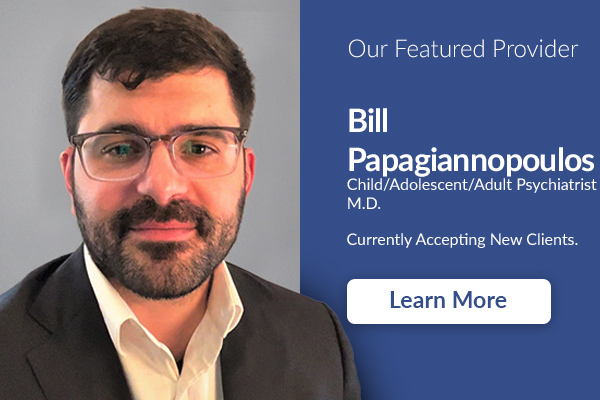Watching someone you care about struggle with mental health can feel overwhelming. It’s a journey filled with uncertainty, but it’s also one where support and understanding can make all the difference. Many individuals resist seeking treatment due to stigma, fear, or simply not recognizing the need for help. Families often find themselves in difficult situations, unsure of how to get psychiatric help for a family member.
This guide aims to inspire hope and provide actionable steps for those looking to help their loved ones. Recognizing the signs of mental health challenges is the first step toward making a positive change. Professional support can have a life-changing impact, offering both the person and their family a path forward.
While the journey may be tough, it’s important to approach it with empathy and patience. Stigma and resistance can make the process harder, but with the right resources and guidance, families can navigate these challenges effectively. This article will offer practical tips and highlight services like SamaraCare offers to ensure families feel equipped to provide the support their loved ones need.
Key Takeaways
- Recognizing mental health challenges is the first step toward helping a loved one.
- Professional treatment can have a transformative impact on mental health.
- Stigma and resistance often make seeking help difficult but not impossible.
- Empathy and patience are essential when supporting someone through their journey.
- Resources like SamaraCare can provide valuable assistance for families.
Understanding the Importance of Mental Health Treatment

Mental health treatment plays a vital role in transforming lives and strengthening relationships. It offers a structured approach to addressing challenges, improving daily functioning, and fostering emotional resilience. For individuals experiencing difficulties, professional care can provide the tools needed to navigate life’s complexities.
Families often witness the ripple effects of untreated mental health conditions. Seeking expert help not only benefits the individual but also enhances the overall well-being of the entire family. Early intervention and consistent support can lead to lasting positive changes.
Benefits of Professional Treatment
Professional services are designed to address a wide range of mental health concerns. These include anxiety, depression, and other conditions that impact daily life. Through therapy and counseling, individuals gain improved self-esteem and better decision-making skills.
Families also benefit from reduced stress and enhanced communication. Expert care helps alleviate symptoms, creating a more harmonious home environment. This support fosters stronger bonds and a deeper understanding among loved ones.
People with mental illnesses often struggle to reach out for help due to how they will be perceived or their lack of awareness. However, seeking mental health care has numerous advantages. When experiencing a mental health crisis, professional treatment provides evidence-based interventions that can significantly improve quality of life. The National Institute of Mental Health emphasizes that early intervention for mental disorders leads to better outcomes.
If someone you know experiences a mental health problem, you can help your friend or family member by researching mental health services in your area. At SamaraCare, we offer outpatient locations in the Chicagoland area, including these cities:
- Evanston, IL
- Lisle, IL
- Naperville, IL
- Wheaton, IL
- Wilmette, IL
- Winnetka, IL
While you cannot force someone to get help, family support and encouragement from friends and family members can motivate them to seek the help they need.
Long-Term Impact on Family Well-Being
Timely mental health treatment can lead to significant long-term improvements. Families often experience stronger relationships and a greater sense of unity. The positive effects extend beyond the individual, influencing the emotional health of everyone involved.
Statistics show that families who seek professional help report higher levels of satisfaction and resilience. This approach not only addresses immediate concerns but also builds a foundation for future well-being.
| Benefit | Impact on Individual | Impact on Family |
|---|---|---|
| Improved Self-Esteem | Greater confidence and independence | Reduced worry and stress |
| Better Communication | Enhanced ability to express emotions | Stronger family bonds |
| Reduced Symptoms | Improved daily functioning | Harmonious home environment |
Recognizing Signs and Symptoms in a Family Member

Behavioral shifts often signal underlying mental health concerns. These changes can be subtle but are crucial to identify early. Recognizing these signs is the first step toward addressing a potential problem before it escalates.
Common Warning Signs and Indicators
Certain behaviors may indicate a need for professional attention. These include persistent sadness, withdrawal from social activities, and sudden mood swings. Disruptive actions, like aggression or impulsivity, can also be red flags.
Mental health conditions often manifest gradually. Ignoring these symptoms can lead to a worsening situation. Early recognition and intervention are key to preventing a crisis.
Here are some common signs to watch for:
- Persistent feelings of despair or hopelessness.
- Withdrawal from family, friends, or hobbies.
- Drastic changes in sleep or eating patterns.
- Increased irritability or unexplained anger.
- Difficulty concentrating or making decisions.
Being vigilant and proactive is essential. If unusual changes are observed, seeking resources like counseling or support groups can make a difference. Early action can lead to better outcomes for the member and the entire family.
Understanding these signs is not about labeling but about offering the right support. With empathy and awareness, families can take meaningful steps toward improving their loved one’s well-being.
How to Get Psychiatric Help for a Family Member

Families often face challenges when encouraging a loved one to seek professional care. Stigma, fear, and uncertainty can create barriers. However, taking the first step toward mental health support is essential for positive change. Early intervention can significantly improve outcomes for both the individual and their family.
SamaraCare Outpatient Services
SamaraCare offers specialized outpatient services designed to address a wide range of mental health conditions. Our programs provide structured support, including initial assessments. These services are tailored to meet the unique needs of each individual, ensuring they receive the care they deserve.
Families can reach out to SamaraCare for guidance and support. Our team of experienced psychiatrists works closely with individuals and their families to create personalized treatment plans. This collaborative approach helps reduce risk and ensures overall safety.
Steps to Access Professional Support
Approaching a loved one about seeking professional help requires empathy and patience. Here are some steps to consider:
- Start with an open and honest conversation about their well-being.
- Research local psychiatric services and treatment options.
- Highlight the benefits of early intervention and professional care.
- Encourage them to participate in an initial assessment.
Timely professional intervention is crucial in addressing mental illness and reducing risk. Families play a vital role in supporting their loved ones through this process. With the right resources and guidance, they can navigate the challenges and create a path toward recovery.
Effective Communication Strategies with Your Loved One

Effective communication is a cornerstone of supporting someone with mental health challenges. It fosters understanding, reduces defensiveness, and builds trust. When discussing sensitive topics, the right approach can make all the difference.
Using Empathy and “I” Statements
Empathy is key to creating a safe space for dialogue. Using “I” statements helps express feelings without sounding accusatory. For example, saying “I feel concerned when I notice changes in your behavior” is more effective than “You’re acting strange.”
This approach reduces defensiveness and opens the door for honest conversations. It also shows the person mental health concerns are being addressed with care and respect. Supportive language like this can strengthen relationships and encourage openness.
Setting Healthy Boundaries
While offering support, it’s important to set clear boundaries. Boundaries ensure both parties feel respected and safe. For instance, stating “I’m here to listen, but I also need time for myself” balances support with self-care.
Boundaries are especially crucial during a crisis. They help maintain stability and prevent burnout. Calm and regular conversations can also ease tension and foster mutual understanding.
Here are some tips for effective communication:
- Use “I” statements to express feelings without blame.
- Listen actively and avoid interrupting.
- Stay calm, even during difficult discussions.
- Set boundaries to protect your well-being.
- Encourage shared responsibility in the journey toward healing.
By combining empathy with practical strategies, families can navigate mental health challenges with confidence. Thoughtful communication builds trust and strengthens bonds, creating a foundation for lasting positive change.
Navigating the System: Finding the Right Support and Resources

Finding the right support system can transform the journey toward mental wellness. Accessing reliable resources ensures families and individuals feel empowered to take meaningful steps. With the right guidance, navigating the complexities of mental health systems becomes less daunting.
Working with Health Professionals
Collaborating with mental health professionals ensures a personalized approach to care. Primary care providers often serve as the first point of contact, offering referrals to specialists. Building a strong relationship with these experts fosters trust and improves outcomes.
Taking the time to communicate openly with professionals is essential. Share concerns, ask questions, and discuss treatment goals. This partnership ensures the individual’s needs are met effectively.
Utilizing Online and Community Support
Online platforms and community groups provide additional layers of support. Virtual forums and social media groups connect individuals facing similar challenges. These spaces offer a safe environment to share experiences and coping strategies.
In-person support groups also play a vital role. They foster connections and reduce feelings of isolation. Engaging with these resources can complement professional health treatment and enhance overall well-being.
Here are some benefits of community-based support:
- Shared experiences create a sense of belonging.
- Practical advice from peers can be highly valuable.
- Regular meetings provide consistency and accountability.
By leveraging local, professional, and community resources, families can build a robust support network. This approach ensures no one faces mental health challenges alone.
Overcoming Barriers to Seeking Treatment

Breaking down barriers to mental health treatment starts with understanding the challenges. Many individuals face societal stigmas and practical obstacles that prevent them from seeking care. Addressing these issues is essential for creating a path toward recovery.
Addressing Stigma and Misconceptions
Stigma remains one of the most significant barriers to mental health treatment. Misconceptions about illness often lead to fear and shame. Families may worry about judgment from their friends family circle or community.
To combat stigma, education is key. Sharing accurate information about mental health can dispel myths. Open conversations reduce fear and encourage individuals to seek support. Highlighting success stories also inspires hope and reduces negative perceptions.
Here are some strategies to address stigma:
- Educate yourself and others about mental health conditions.
- Use positive language when discussing illness.
- Encourage open dialogue within your community.
- Support initiatives that promote mental health awareness.
Tackling Financial and Logistical Challenges
Practical issues like cost and accessibility often deter individuals from seeking treatment. Financial constraints can make professional care seem out of reach. Logistical challenges, such as lack of transportation or scheduling conflicts, add to the difficulty.
SamaraCare addresses these barriers by offering reduced-cost care to the uninsured, underinsured, and those facing financial hardship. Telehealth services provide flexibility for those with busy schedules or limited mobility.
For families with a child in need, school-based programs and community centers can be valuable resources. In emergencies, crisis hotlines and local clinics offer immediate support. Taking these steps ensures that financial and logistical hurdles don’t stand in the way of care.
Overcoming these challenges benefits not only the individual but also their loved ones. With persistence and the right resources, barriers can be transformed into stepping stones toward healing.
Inspiring Steps Towards Mental Health Recovery

Caregivers play a vital role in the recovery journey, but their own well-being is equally important. Supporting a loved one through mental health challenges can be emotionally taxing. Prioritizing self-care ensures caregivers remain strong and effective in their role.
Self-Care and Support for Family Caregivers
Family caregivers often focus on their loved one’s needs, yet neglecting their own health can lead to burnout. Joining support groups or seeking guidance from a professional can provide much-needed relief. Regular self-care practices, such as exercise or mindfulness, help maintain emotional balance.
Here are some self-care tips for caregivers:
- Set aside time for hobbies or activities that bring joy.
- Connect with a provider or therapist to discuss personal challenges.
- Join local or online support groups to share experiences.
- Practice relaxation techniques to manage stress effectively.
Recognizing Critical Signs and Crisis Planning
Caregivers must be vigilant about recognizing critical signs that may indicate a crisis. Sudden changes in behavior, extreme mood swings, or withdrawal from social interactions are red flags. In such cases, contacting the primary care physician, a psychiatrist, or visiting a hospital may be necessary.
Having a crisis plan in place ensures quick and effective action. This plan should include emergency contacts, local resources, and steps to de-escalate a situation. Proactive planning reduces stress and ensures safety for everyone involved.
| Self-Care Activity | Benefit |
|---|---|
| Exercise | Boosts energy and reduces stress |
| Mindfulness | Improves focus and emotional regulation |
| Support Groups | Provides a sense of community and shared understanding |
| Therapy | Offers professional guidance and coping strategies |
Recovery is a journey that begins with self-care and acknowledgment of one’s own needs. By prioritizing their well-being, caregivers can better support their loved ones and inspire hope for a brighter future.
Conclusion

Recovery begins with recognizing the need for professional guidance and community support. Identifying symptoms early and connecting with a health professional can prevent a case from escalating. In emergencies, reaching out to a crisis line can be life-saving, especially for individuals experiencing depression or thoughts of suicide.
Support systems play a crucial role in overcoming mental health challenges. Whether it’s an adult or a young person, timely intervention ensures better outcomes. Organizations like SamaraCare provide tailored services, offering hope and practical solutions for those in need.
No one should face these struggles alone. Taking the first step toward recovery is a brave and transformative decision. With compassion, persistence, and the right resources, healing is within reach.
FAQ: How To Get Psychiatric Help For A Family Member

What are the benefits of professional mental health treatment?
Professional treatment offers tailored care, reduces symptoms, and improves overall well-being. It empowers individuals to manage their condition effectively.
How can I recognize signs of a mental health condition in a family member?
Look for changes in behavior, mood swings, withdrawal, or difficulty managing daily tasks. These may indicate a need for support.
What services does SamaraCare provide for mental health support?
SamaraCare offers outpatient services, counseling, therapy, and resources to help individuals and families navigate mental health challenges.
How can I communicate effectively with a loved one experiencing mental health issues?
Use empathy, “I” statements, and active listening. Setting healthy boundaries also fosters trust and understanding.
How can I overcome stigma when seeking mental health treatment?
Educate yourself and others about mental health. Focus on the positive impact of treatment and share success stories.
What are some self-care tips for family caregivers?
Prioritize your own well-being by setting aside time for rest, and hobbies, and seeking support from friends or professionals.
What should I do in a mental health crisis?
Contact a crisis line, visit the nearest hospital, or reach out to a mental health professional immediately.
How can I help a child struggling with mental health issues?
Provide a safe space for them to express feelings, seek professional help, and involve trusted adults in their support system.



Comments are closed.